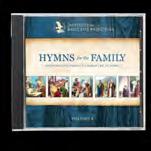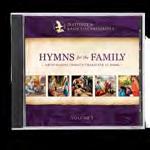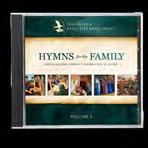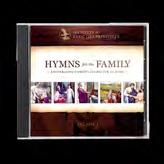Humility
Recognizing
THE PUBLICAN PLEADS FOR MERCY
“The Pharisee stood and prayed thus with himself, God, I thank thee, that I am not as other men are . . . . And the publican, standing afar off, would not lift up so much as his eyes unto heaven, . . . saying, God be merciful to me a sinner.”


LUKE 18:11, 13

that without the help of God and others my achievements in life would not have been possible
BIBLICAL CHARACTER ILLUSTRATED CURRICULUM Illustrated in Scripture, Illustrated in Life
“But he giveth more grace. Wherefore he saith, God resisteth the proud, but giveth grace unto the humble.” JAMES 4:6
Organizer
SPIRITUAL GIFT:
CONTENTS
2 Introduction
2 How to Use This Curriculum
3 Goals and Objectives
4 Character Quality Overview
5 Humility in Scripture
6 Lesson 1: See My True Condition
7 Bible Story: The Publican Pleads for Mercy
8 Memory Verse: I Corinthians 15:10
9 Activity: True Heart Conditions Revealed

10 Lesson 2: Have a Teachable Spirit
11 Bible Story: Eighty Priests Confront a Stubborn King
12 Memory Verse: Proverbs 9:9
13 Activity: Let’s Make Playdough!
14 Lesson 3: Acknowledge Those Who Have Helped Me Succeed
15 Bible Story: King Ahasuerus Commends a Faithful Man
16 Memory Verse: I Thessalonians 5:12–13
17 Activity: Passing the Praise
18 Lesson 4: Avoid Boasting or Bragging
19 Bible Story: God Responds to Nebuchadnezzar’s Boasting
20 Memory Verse: James 4:6
21 Activity: Crossword Puzzle
22 Additional Resources
22 Humility GEMs
23 Journal and GEM Mine
24 Hymn Sheet Music: “Amazing Grace”
25 Hymn History: “Amazing Grace” by John Newton





26 Explaining Salvation to a Child
27 Reproducible Coloring Pages
31 Recommended Resources


Biblical Character Illustrated Curriculum
Illustrated in Scripture
“The testimony of the Lord is sure, making wise the simple” (Psalm 19:7b). Biblical character is illustrated in this curriculum through both artwork and lessons from the lives of people in God’s Word. We most often benefit from the positive examples of faithful men and women. “For whatsoever things were written aforetime were written for our learning, that we through patience and comfort of the scriptures might have hope” (Romans 15:4). There were also people in the Bible who are representations of poor character, and we can learn from their lives as well. “Now these things were our examples, to the intent we should not lust after evil things, as they also lusted” (I Corinthians 10:6). We would be wise to learn from the testimonies God has given us in Scripture.
Illustrated in Life
“Faith cometh by hearing, and hearing by the word of God” (Romans 10:17). Hearing the Word of God causes us to grow in faith. This curriculum offers many practical applications of God’s Word to everyday life. “But be ye doers of the word, and not hearers only” (James 1:22). As God enables us to act in faith, our lives as believers will illustrate His character to others.
The character of God is illustrated in Scripture. May it also be illustrated in
our lives.
Character Quality Overview


What Is Humility?
Read aloud and discuss what humility means and how it applies to life.


The operational definition of humility is “recognizing that without the help of God and others my achievements in life would not have been possible.” Without God, you would not even have air to breathe! Without the care of others, you would not have been able to survive. Every person on the planet is dependent on God and others, so there is no reason to feel more important than anyone else. In contrast to us, God is self-sufficient, all-knowing, and all-powerful—He reigns over all the earth, now and forever! Do you see how lowly we all are compared to the greatness of God? “What is man, that thou art mindful of him? and the son of man, that thou visitest him?” (Psalm 8:4). May we respond with praise to God for Who He is and thank Him for His many blessings.
The opposite of humility is pride. Pride is an exaggerated view of oneself. Did you know that all conflict is rooted in pride? (See Proverbs 13:10.) A proud person thinks he is better than other people. He does not want to acknowledge his need for God or anyone else. He talks about his own strengths and downplays others’ abilities. A proud person assumes he has the right to make his own decisions. Pride was first expressed when Lucifer said in his heart, “. . . I will be
like the most High” (Isaiah 14:14). His intention was to compete with God and to receive praise that belongs only to God. Therefore, God cast Lucifer to earth, where he became Satan and tempted Adam and Eve to rebel against God. Since the Garden of Eden, people have pridefully wanted to live independently of God and have their own way. Pride is an abomination to the Lord that will not go unpunished. (See Proverbs 16:5.)
Putting ourselves down or comparing ourselves with more successful people may give the appearance of humility. However, as we exhibit that false humility, our focus is still on ourselves, which is pride. If we are honest, we will realize that these actions are actually efforts to gain attention, affirmation, or sympathy. When we focus on Christ, we will find freedom from thoughts that are self-condemning or self-promoting.
Once we trust Christ for salvation, our minds can be renewed as we meditate on God’s Word and obey the Holy Spirit’s promptings. Then our motives, attitudes, and actions will reflect the Lord’s humility and draw attention to Him, not us. “Take my yoke upon you, and learn of me; for I am meek and lowly in heart: and ye shall find rest unto your souls” (Matthew 11:29).
4
A puffer fish enlarges his body to appear larger than his normal size. Similarly, a person who is “puffed up” with pride attempts to present himself as better than he is.
Washing dirty feet was regarded as a lowly task in Biblical times. A humble person will lovingly serve others, even in menial ways.
Humility in Scripture
As you read and study God’s Word, you will see Who He is! Be willing to be changed by Him so Christ can be seen through your life and others will glorify God.
The Character of God

We see examples of humility in God’s character in the following ways:
• God Almighty humbles Himself to consider things in Heaven and on earth.
(See Psalm 113:5–6.)
• Jesus submitted to both His Heavenly Father and His earthly parents.
(See Mark 14:36, Luke 2:51.)
• Jesus humbled Himself to become human, dwell on earth, and even die on a cross for our sin.
(See Matthew 20:28, Philippians 2:6–8.)
• Christ’s works caused people to glorify His Father.
(See Luke 18:42–43.)
• Jesus willingly took on lowly tasks such as washing His disciples’ dirty feet.
(See John 13:14–15.)
• The Holy Spirit does not speak of Himself but speaks only what He hears from the Father.
(See John 16:13.)
• The Holy Spirit demonstrates humility by dwelling in unworthy human vessels.
(See I Corinthians 3:16, II Corinthians 4:7.)
HUMILITY KEY VERSE
“But he giveth more grace. Wherefore he saith, God resisteth the proud, but giveth grace unto the humble.” JAMES 4:6
Humility in My Life
Now let’s examine some ways God wants us to live out humility daily.
• How does God respond to people who are humble?
(See Psalm 10:17.)
• What does God think of pride?
(See Proverbs 6:16–17.)
• Whose responsibility is it to be humble, and whose responsibility is it to exalt?
(See Psalm 75:6–7, James 4:10.)

• Who is great in God’s Kingdom?
(See Matthew 18:4, Luke 22:26.)
• What is my role if I desire to see God heal my nation?
(See II Chronicles 7:14.)
• What can I “put on” that is precious in the sight of God?
(See I Peter 3:3–4, 5:5.)
• Whom am I to honor as better than myself?
(See Philippians 2:3, I Peter 2:17.)
5
See My True Condition
Do you consider yourself to be more spiritual than other people because you know many Bible stories and verses? Maybe you feel superior because of your abilities. Remember that everyone, including you, comes into this world with nothing! Every person is born helpless and totally dependent upon someone else for food, clothing, and protection. Everyone is also born with a sinful heart. God wants you to see your true condition—you need His forgiveness of your sin and His grace to live the Christian life. (See John 15:5.) Rather than striving to impress God or others, repent of your self-reliance. Rest in the forgiveness and love of the Lord, Who knew your true condition yet gave His life to redeem you. This salvation shows how gracious God is! (See Ephesians 2:4–8.)
HUMILITY



Recognizing that without the help of God and others my achievements in life would not have been possible

6
INTRODUCTION GOD ENABLES ME TO
The Publican Pleads for Mercy
The Publican Pleads for Mercy
Prayer was an important part of Jesus’ life on earth. His public ministry began with prayer to His Father after He was baptized by John the Baptist. (See Matthew 4:2.) On the cross, Jesus concluded His earthly ministry when He prayed, “Father, into thy hands I commend my spirit.” Prayer is talking with God, realizing that we are dependent on Him and that He is worthy of praise. Often after Jesus preached and healed, He would retreat to a quiet place to talk to His Father. When the disciples asked Jesus to teach them how to pray, He told them to approach God reverently, repent of their sin, forgive others, and trust God
to provide for their needs. Another time, Jesus told a parable which illustrated that His Father rewards persistent prayer. In the parable, a widow pleaded with a judge and would not stop until she received justice.
Jesus also told a parable about two men who went to the Temple to pray. The two men were opposites: one was a despised tax collector and the other man was a religious leader. How would each man approach God in prayer? Would each recognize his true spiritual condition before God? Which person would be justified by God?
Let’s read the Bible story in Luke 18:9–14 and then discuss the following questions.
1. To whom was Jesus telling the parable of the Pharisee and the publican? (See Luke 18:9.)
When do you tend to view yourself as being better than someone else? How does God say you are to view yourself? (See Romans 12:3.)
2. To whom did the Pharisee compare himself?
(See Luke 18:11.)
What faults or habits do you criticize in others? Is it wise to compare yourself to others?
(See II Corinthians 10:12.) What does your judgment of others reveal about yourself?
(See Romans 2:1, 3:10.)
3. How many times did the Pharisee use the word “I” in his prayer? (See Luke 18:11–12.)
Do you talk about yourself a lot? When you do good deeds, are they done for your glory or for God’s? How did Jesus say to do good deeds for God’s glory? (See Matthew 6:1–4.)
4. In what was the Pharisee trusting?

(See Luke 18:12.)
Do you try to make yourself look good before others? Why do you think that it is difficult to admit when you are wrong?
5. What four things did the publican do and say that revealed he knew his true heart condition?
(See Luke 18:13.)
When have you asked God for mercy? What heart attitude will God receive? (See Psalm 51:17.)
6. According to Jesus, which man was forgiven and made right, or justified, in God’s sight?

(See Luke 18:14a.)
If you have asked Jesus for forgiveness, what is your true condition now? (See Galatians 4:4–7, II Corinthians 5:17.)
7. What did Jesus say about those who exalt themselves and those who humble themselves?
(See Luke 18:14b.)
What does the Bible warn about pride?
(See Proverbs 16:5, 18.) How does God respond to the humble? (See Isaiah 57:15, James 4:6, 10.)
7
BIBLE STORY
LESSON 1 See My True Condition
Revealing the character of Christ through the stories in His Word.
SAVE 20% on any individual Biblical Character Illustrated booklets

Use coupon: BCICBOOKLET


Biblical Character Illustrated Curriculum
Discover this unique tool that uses the stories in Scripture to illuminate character qualities God wants to develop in the lives of His people. This curriculum contains multiple ways to teach character to kids and give them a vision for building character through faith in Christ!

Single Booklets: $10 each
Complete Set: $379 (SAVE 23%)
OTHER BIBLICAL CHARACTER RESOURCES

Single PDF Download: $3 each
PDF Download Set: $109 (SAVE 25%)

Biblical Character Illustrated 49-Booklet Set
Includes 2 bonus items: Calendar + Understanding Spiritual Gifts

Power for True Success
Insightful, Biblical studies on all 49 character qualities
Hymns for the Family, Volumes 1–4




Companion hymns for each character quality
Character Sketches, 4-Volume Set
Timeless resources to show God’s character relfected in creation

Shop these resources at store.iblp.org. • Questions? Call 903-636-9600 or email biblicalcharacter@iblp.org.



























